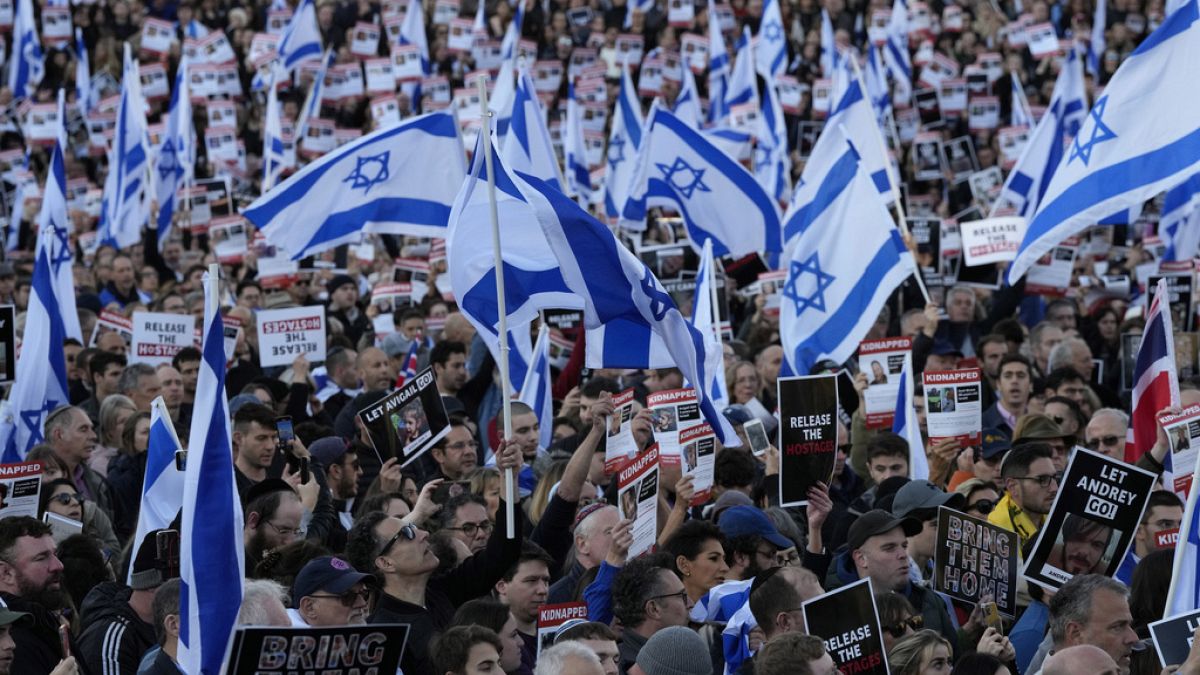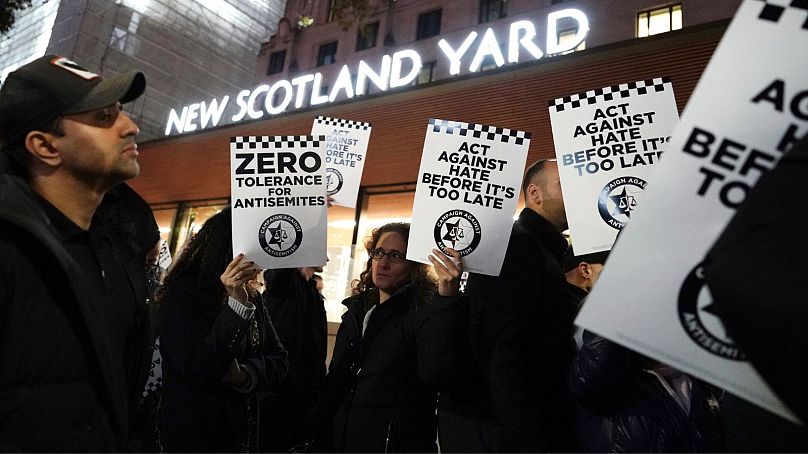New research by the Institute for Strategic Dialogue found that in the days after Hamas' attack antisemitic comments on conflict-related YouTube videos increased by 4963%.
Antisemitic remarks have soared online since Hamas’ surprise attack on Israel on 7 October, with YouTube totalling 15,720 hateful comments against Jewish people in the following week, according to a recent report.
Fears have also grown over rising Islamophobia as soaring tensions around the world over the Israel Hamas war.
The new research, released by the UK-based Institute for Strategic Dialogue (ISD) on Tuesday, found that in the three days following the attack, the absolute number of antisemitic comments on conflict-related YouTube videos increased by 4963% when compared to the previous three days.
Part of this surge can be explained by an increase in the number of videos focusing on Israel and Gaza published on the platform. But the proportion of antisemitic comments had still ballooned by a daily average of 247% after fighting broke out, according to the ISD.
Most were 'borderline' comments
Comments contained dehumanising language, including comparisons between Israelis and Nazis, conspiracy theories - ranging from the idea that Jewish people control the media, as well as political and financial institutions, to the claim that the Hamas attack was a ‘false flag’ planted by Israel - and direct threats to Jewish figures and officials.
These included the use and circulation of graphic images and calls for violence against Jewish officials.
All three types of comments fall under the International Holocaust Remembrance Alliance’s (IHRA) definition of antisemitism.
Other comments found online, according to the ISD, fell into a “grey area between legitimate criticism of Israel and antisemitism”, using offensive language that could not be considered straightly antisemitic. The think tank described most of the antisemitic comments found on YouTube as "borderline" in nature or in some legal jurisdictions.
The 15,720 anti-semitic comments it found on YouTube videos represented a nearly 51-fold increase in the absolute volume of such remarks. During the same period, the data also showed a 2.4 times surge in the overall proportion of antisemitic messages.
The British think tank also analysed fringe and alternative social media platforms like 4chan, Gab, and Telegram, finding that antisemitism has significantly increased there too, with 4chan reporting the highest volume of such remarks.
A YouTube spokesperson told Euronews: "Content that promotes violence or hatred against the Jewish community is not allowed on YouTube. This has been our longstanding policy, and we've continued to rigorously enforce it, following the terrorist attacks by Hamas in Israel and the escalated conflict now underway in Israel and Gaza. Our teams remain vigilant and are ready to quickly take action if needed."
Rise in both antisemitic and Islamophobic hate attacks
While the ISD’s report did not analyse the number of Islamophobic comments online in the aftermath of Hamas’ attack on Israel, experts have expressed fears that Islamophobic hate attacks could increase as the conflict in the Middle East unfolds.
London police said on Friday they had recorded a 1353% increase in antisemitic offences this month compared to the same period last year, while Islamophobic offences were up 140% in the wake of the attack by Hamas on Israel.
In the US, the Anti-Defamation League and the Council on American-Islamic Relations both reported a surge in reported attacks, including acts of violence or threats against protesters at rallies in support of Israel or in support of Palestinians in the weeks following 7 October, as reported by PBS.
In the days following Hamas’ attack, a 6-year-old Muslim boy - Wadea Al-Fayoume - died after being stabbed in an attack that targeted him and his mom for their religion, according to US authorities.

